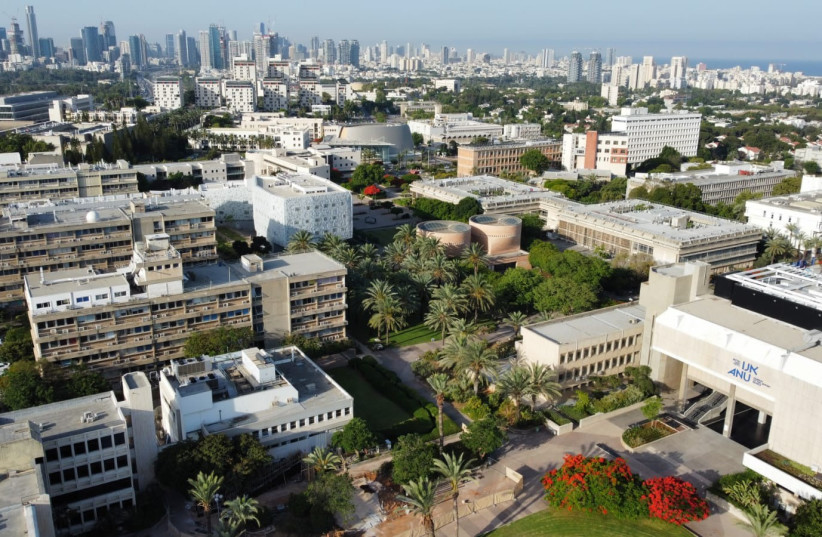Following years of controversy, accusations and hundreds of lawsuits against the Sackler family – which became billionaires from the sale of opioids by its Purdue Pharma company – the family and Tel Aviv University have agreed to remove the Sackler name from TAU’s Faculty of Medicine.
The two sides issued a joint announcement on Wednesday without providing any explanation for dropping the name of the medical school. “For the last 50 years, the Faculty of Medicine at Tel Aviv University has proudly borne the Sackler family name,” the short statement said.
“In a continuing desire and commitment to assist the university and the faculty to raise funds for medical research, the Sackler family has kindly agreed to remove their name from the Faculty of Medicine. With this move, they will enable the university to offer naming opportunities for the Faculty of Medicine and School of Medicine to new donors."
“Tel Aviv University gratefully acknowledges the multi-decade contributions of the Sackler family to the development of the Faculty of Medicine into an Israeli and world leader in the health field.”
Reportedly worth some $11 billion from their company’s sales of its addictive pain-relieving drug OxyContin, even after settling numerous lawsuits, the Sacklers have been blamed for causing many deaths in the US alone over the past 20 years. Family members and their involvement in promoting the drug was discussed two years ago by the US House Oversight Committee.

Dozens of institutions have removed the Sackler name
The Sacklers, whose company was established in 1952, have donated hundreds of millions of dollars to a large number of public institutions – museums, galleries, libraries, universities and more – in the US, Europe, Israel and elsewhere. Among funding recipients that have already dropped the Sackler name are: Tufts University, Yale University, New York’s Metropolitan Museum of Art, the Solomon R. Guggenheim Museum, Dia Art Foundation, National Gallery in London, Oxford University, the British Museum, Victoria and Albert Museum, Tate Britain, Tate Modern, Dulwich Picture Gallery, The Design Museum, the Garden Museum, the Royal College of Art, London’s Serpentine Galleries, Shakespeare’s Globe Theater, Sussex University, and Paris’s Louvre Museum.
Other respected institutions in the West said they would no longer accept donations from the Sacklers, but couldn’t remove the name because they had signed agreements stating the name would be kept “in perpetuity.”
For years, the family was highly respected for philanthropy, but soon became loathed after their involvement in the opioid crisis, including their claims that OxyContin was safe and not addictive.
Recent court rulings in the US determined that the family can be protected from lawsuits over the opioid crisis in exchange for a $6 billion contribution to the company’s broader bankruptcy settlement. More than $750 million will be devoted to compensate individual victims of the opioid crisis and their survivors. Purdue, which was liquidated two years ago, pleaded guilty to charges related to its marketing of OxyContin, and the Sackler family expressed “regret” but denied wrongdoing.
According to media reports, former Purdue Pharma president and septuagenarian Dr. Richard Sackler had to sell his luxurious mansions in Beverly Hills, California, Austin, Texas and Boca Raton in Florida to help pay his debts.
